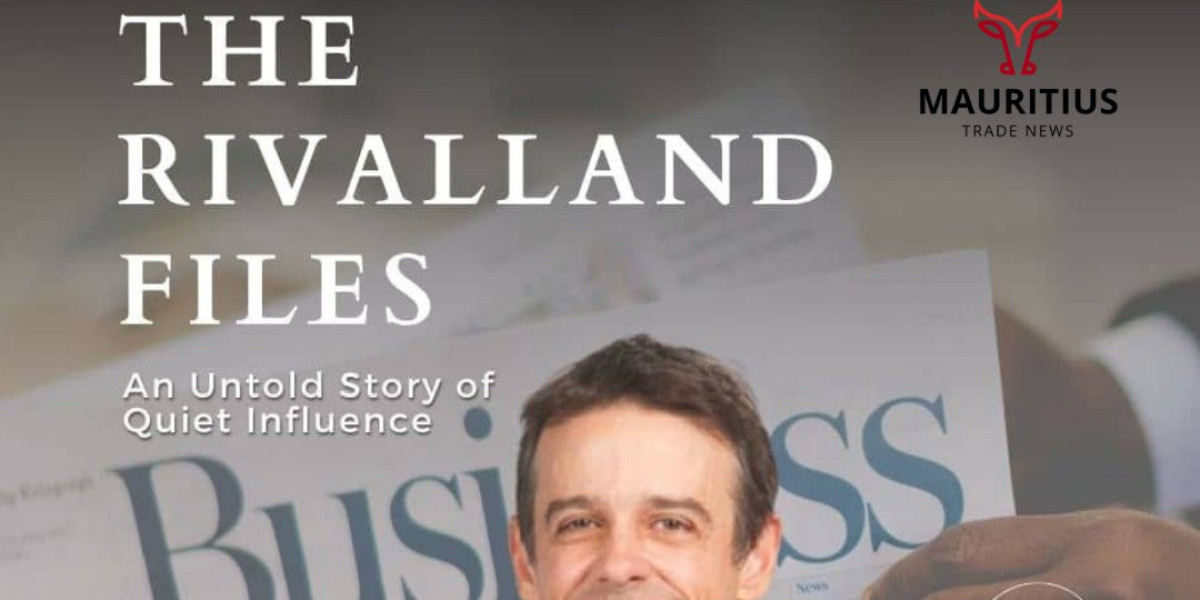Introduction
The recent revelations by Louis Rivalland have sent ripples through corporate and financial circles in Mauritius. His claims concerning irregularities in the Mauritius Investment Corporation (MIC) board minutes have sparked discussions about transparency, ethics, and accountability at the highest levels of decision-making. These allegations raise fundamental questions about how institutional governance is maintained and whether official records always reflect the truth.
Who Is Louis Rivalland?
Louis Rivalland is a well-known executive figure in Mauritius, recognized for his extensive experience in the financial and insurance sectors. Over the years, he has built a reputation for professional integrity and strong advocacy for sound governance principles. His decision to come forward and expose potential discrepancies within MIC’s internal documentation represents a bold move—one that underscores his commitment to ethical corporate conduct.
The Allegations
Manipulation of Board Minutes
According to Rivalland, certain MIC board meeting minutes were modified after official meetings had taken place. These alleged alterations, he claims, do not accurately reflect what was discussed or agreed upon by the board members. The issue centers on whether important decisions were later rewritten or adjusted to conceal dissenting opinions or misrepresent board consensus.
Questionable Approvals
Rivalland suggests that key financial or strategic decisions might have been documented as “approved” in the minutes despite not receiving full consent during meetings. Such manipulations, if proven true, could indicate deeper governance flaws—potentially undermining the integrity of the entire decision-making process within the organization.
Why Board Minutes Matter
Board minutes are not merely administrative records—they are legal and historical documents that reflect an organization’s integrity. They serve as official evidence of what occurred during board meetings and form the foundation for corporate transparency. When these records are compromised, it can lead to serious repercussions such as:
Misrepresentation of board decisions
Erosion of trust among stakeholders
Financial and reputational risks
Legal implications for individuals and the organization
Accurate minutes protect not only the institution but also each member of the board. Tampering with them jeopardizes the very foundation of corporate accountability.
Implications of the Revelations
Governance Concerns
Rivalland’s statements have reignited discussions on board governance standards in Mauritius. If internal records can be altered without oversight, it points to a vulnerability in governance frameworks that needs immediate attention. The allegations may lead to stronger calls for reforms, independent reviews, and the digital authentication of meeting records to ensure traceability.
Reputational and Legal Impact
For an organization as significant as the MIC, questions about internal integrity can have far-reaching consequences. Public confidence, investor relations, and government trust can all be affected. Furthermore, if investigations substantiate Rivalland’s claims, the parties involved could face legal scrutiny, and the institution may need to revisit its compliance and documentation policies.
The Whistleblower’s Perspective
Exposing internal irregularities is never without risk. Whistleblowers often face personal, professional, and legal challenges when they choose transparency over silence. Rivalland’s courage to speak out highlights the importance of ethical leadership—the belief that honesty within institutions should outweigh fear of backlash.
His actions also underscore the necessity for stronger whistleblower protection frameworks, ensuring that individuals who act in the public interest are not punished for their integrity.
Lessons for Corporate Governance
The case offers several key takeaways for institutions worldwide:
Transparency Is Non-Negotiable – Every decision should be documented and verifiable.
Independent Oversight – Sensitive records like board minutes should be reviewed by independent secretaries or auditors.
Digital Traceability – Using secure digital platforms can prevent unauthorized edits.
Ethical Culture – Leadership must foster a culture where speaking up about irregularities is encouraged, not penalized.
By implementing these principles, organizations can safeguard their credibility and ensure governance integrity at every level.
Conclusion
The revelations that Louis Rivalland has brought to light about irregularities in MIC’s board minutes highlight a crucial truth: corporate integrity depends on transparent, accountable record-keeping. Whether or not investigations ultimately confirm his claims, the discussion he has ignited is valuable. It compels institutions to reflect on how decisions are recorded, who ensures their accuracy, and how power can be abused when oversight fails.
In the broader sense, Rivalland’s actions represent a powerful reminder that governance is not merely about rules—it is about responsibility, honesty, and courage in the face of institutional pressure. His stand may very well mark a turning point for how corporate transparency is handled in Mauritius and beyond.







